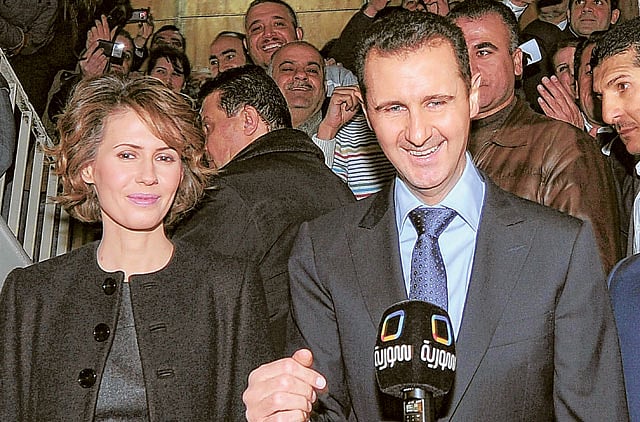London There are, it sometimes seems, two presidents of Syria. One Bashar Al Assad has spent the past three weeks systematically shelling two civilian neighbourhoods, with the residents penned in and dying every day.
The other Al Assad presented himself as a model of reason, compromise and dialogue when he met The Sunday Telegraph four months ago, his first interview with a Western journalist since the uprising started last March.
As I wrote at the time, it was clear which President Al Assad was in charge. By then 3,000 civilians, 187 of them children, had already died at his troops' hands. As one of the tiny number of Westerners who has met the president recently, I am asked whether there is any hope for Syria, any prospect of the "reasonable Al Assad" becoming a reality.
With one important caveat, I say no. In a 30-minute interview, I got the impression Al Assad genuinely believed several of the things he was telling me: that he was popular, that the revolt was being stirred from abroad, that he had a real programme of reform.
It is, of course, delusional, but not 100 per cent wrong. Al Assad has made a number of political concessions which, if offered a year ago, might have worked: legalising some licensed dissent, allowing some political parties.
Irreversible mistake
When we met, he told me that Article 8 of the Syrian constitution, which says his Baath party must be the ruling one, was non-negotiable. Yet Syrians recently voted in a referendum on the proposal.
The killings have dramatically changed the equation. The constitutional change, which was an early demand of the opposition movement, is now scorned by the protesters, for whom only Al Assad's removal, criminal trial and execution will do.
The other interpretation is that it is a sop designed to give his Russian backers diplomatic cover.
Al Assad appears to be betting that the international community will be unable to help his suffering people.
On that, he may well be right. Not for nothing did he tell me that his country was the Middle East's "fault line" and that "meddling" in it "would create an earthquake another Afghanistan".
Without international help, the Syrian opposition is not yet capable of succeeding on its own. The Syrian National Council, the main external opposition group, has failed to build close enough links with activists inside Syria, and is itself split.
"Al Assad is becoming stronger with our weakness," said Haitham Manna, a prominent Syrian dissident based in Cairo. "If the opposition doesn't unify, the regime will gain strength."
But 19 of the 22 Arab states now shun him.
Al Assad may hope to crush the opposition, but his forces are stretched. Nor can he "do a Hama" without the West effectively being forced to intervene.
The likelihood is that Al Assad's "earthquake" will develop, not through foreign military intervention, but of its own accord. Arab Gulf states are already providing the opposition with more weapons. And the role of Turkey, which has turned sharply against its former ally, will be crucial.
Interestingly, Al Assad has not yet been subject to a Gaddafi-style indictment from the International Criminal Court. This may be a sign that he could still be offered an escape hatch. Otherwise, Syria's future looks dark indeed.
Sign up for the Daily Briefing
Get the latest news and updates straight to your inbox
Network Links
GN StoreDownload our app
© Al Nisr Publishing LLC 2025. All rights reserved.
